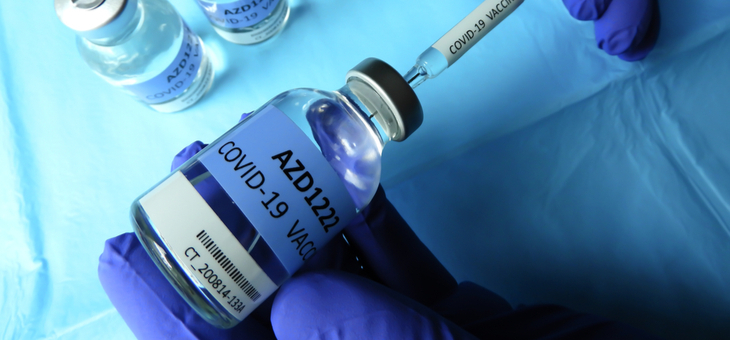Questions have been raised over the efficacy of the AstraZeneca COVID-19 vaccine, with the Australian and New Zealand Society for Immunology saying it may not be effective enough to generate herd immunity.
Herd immunity is when such a large portion of a population becomes immune to the point a virus can no longer transmit and is eliminated.
The plan to offer Pfizer injections for frontline workers and the highest priority cases followed by the AstraZeneca vaccine to much of the rest of the population has been questioned by immunologists.
Clinical trials show the AstraZeneca vaccine is 62 per cent effective when the recommended two doses are given, while the Pfizer and Moderna vaccines are about 95 per cent effective.
While the AstraZeneca jab is safe and may prevent virus transmission, some experts say it’s not effective enough to achieve herd immunity.
“The AstraZeneca vaccine is not one I would be deploying widely, because of that lower efficacy,” Immunology Society president Professor Stephen Turner told The Sydney Morning Herald.
“But it could be used as a tool to blunt the effect of COVID until [more effective] vaccines could be deployed.”
Health Minister Greg Hunt said suggestions the AstraZeneca vaccine may be insufficient to achieve herd immunity in Australia were “clearly incorrect”.
“It’s important to note that the results also show up to 90 per cent effectiveness more generally with final results to come on AstraZeneca, and up to 100 per cent in relation to the severe illness,” Mr Hunt said, quoting results from a much smaller trial than the one which showed the 62 per cent efficacy rating.
“Personally, I’d much rather have AstraZeneca than nothing. I would have it tomorrow. It is a highly safe and effective vaccine.”
Professor Raina MacIntyre, head of the biosecurity program at the Kirby Institute at the University of NSW, said the vaccine may protect “against death and hospitalisation, but may not protect well against infection”.
“I do not believe the AstraZeneca vaccine – based on published phase 3 trial results – will be efficacious enough for herd immunity,” she said.
Other scientists agree.
“Why would we settle for the second-best option?” asked Dr Andrew Miller, president of the Australian Medical Association’s Western Australia branch.
The head of the Australian Medical Association in WA, Andrew Miller, urged the government to halt its plans to begin rolling out the AstraZeneca vaccine from March.
“We need to pause and look at what the outcomes are going to be before we take any further steps,” he said.
“With the AstraZeneca vaccine, on current data, if we rely on that vaccine we’re not going to get to herd immunity.
“Current expectation is we’re going to be able to get back to normal life, but if we don’t get herd immunity there’s no guarantee that we won’t have rolling epidemics.
“Once you have one vaccine, you may not be able to have other ones. That’s why it’s very important to get it right the first time.”
Australia has ordered enough AstraZeneca doses for 26.9 million people, Pfizer jabs for five million people and none of the Moderna vaccine.
While it is hoped the vaccines will provide extra protection against coronavirus infection, it remains unproven if any of the vaccines will actually prevent transmission.
Vaccinated people may still pass on the virus, so scientists are keen to establish herd immunity with a high vaccination rate in order to eliminate the virus.
Would you prefer to wait for a vaccine that is more affective, or are you happy to get one that is proven safe but may be less effective?
If you enjoy our content, don’t keep it to yourself. Share our free eNews with your friends and encourage them to sign up.
Related articles:
https://www.yourlifechoices.com.au/health/covid19/vaccine-doubts-mean-covid-restrictions-could-remain-until-2022
https://www.yourlifechoices.com.au/health/covid19/whats-the-difference-between-the-two-covid-vaccines
https://www.yourlifechoices.com.au/health/covid19/vaccine-unlikely-to-prevent-transmission

